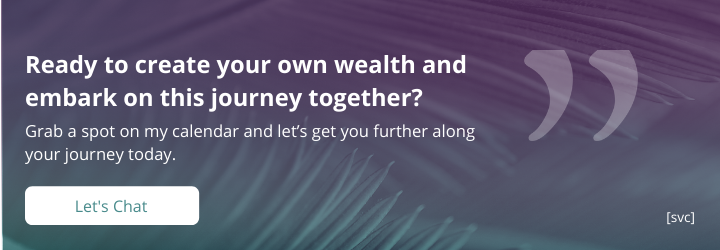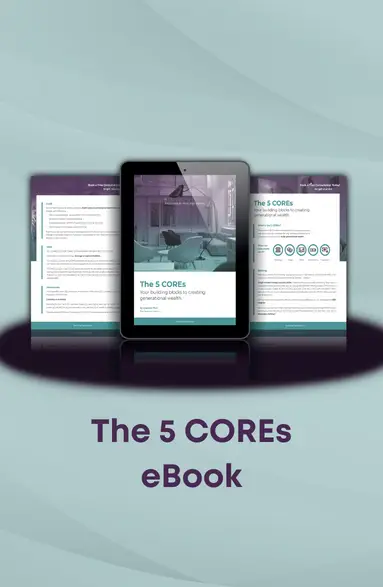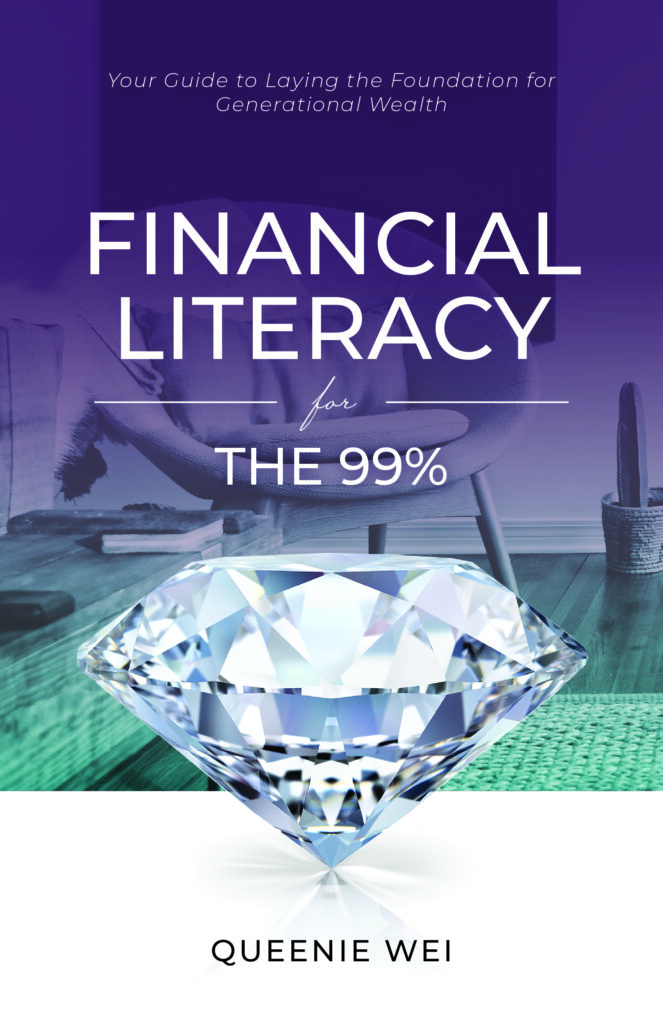Is it a scam, a shelter, or an asset to be hedged?
My parents were always told that people who sold insurance were scammers. Because the likelihood of something bad actually happening to you is very slim and if you’re “good enough” you’ll never get into an accident in the first place, so why bother paying for something that I may or may not get to use?
Sounds logical right?!
This is honestly how insurance companies make their money. The premium you pay is what keeps the light on because the power of the people comes into play. Say you only pay $50/month into your insurance policy. If you’re solo, you’ll only get $600/ year, so it won’t cover much. But if you have over 1,000 paying the same $50/month, that’s $600,000/year, enough to cover most small incidents.
So is it really a scam or just really smart business? I opt for the 2nd, because it can help people in most cases, but I think that there’s a lack of understanding. AND when we don’t understand what’s going on? We feel scared and everything feels like a scam when we’re scared and unsure.
… Or is that just me?
What insurance?
Let’s take a step back first and see if we actually understand the concept of insurance because, quite frankly, I didn’t.
I mean I believed it and thought my parents were outsmarting the system. But here’s the catch though: the whole concept of insurance is based on the transfer of risk. Meaning, you take a situation that’s high risk but if you spread across hundreds or thousands of people, the risk is reduced because the likelihood of something happening to EVERYONE at once is significantly reduced.
The easiest (perhaps too simple) explanation of insurance is security. You’re buying security which, for a lot of people, translates into peace of mind. In the event something unfortunate does happen to you, you don’t really have to sweat the details because you know you’re covered.
Is it a scam?

Some things are too good to be true, but in this instance you’re scamming yourself if you don’t take action. I’m saying this because I was in that boat. It took me 5-7 YEARS before I actually got involved in learning to leverage insurance to hedge my assets as well as to protect them.
As always, please do your own research as each state/provincial law is different and the tax laws will affect.
Do I actually need it?
This is one of those blue or gold dress debates. We all see things differently, so the short answer is – it’s really your choice.
- No one NEEDS money – you need your bills covered
- You don’t NEED wealth – you want freedom
- And you don’t NEED insurance – but it can buy you a peace of mind
So what do you value and is it worth it to have that in your life?
You’re the only one who can answer that. If you’re looking for an answer for someone to tell you what to do, this likely is NOT the book for you. I help guide you through where to look for information as well as share my own journey but remember – no one can or SHOULD tell you what to do with your money. It’s YOUR money, after all.
My work is simply to educate and empower you to make those choices on your own.
Protection & sheltering your assets
So now that you get a sense of what insurance is, let’s talk about the function of insurance when it comes to wealth creation. Most people see insurance as a way to protect themselves, but what they don’t see is that certain types of insurance can actually protect your money as well. For example, from taxes or as an additional boost for your retirement.
Ways to leverage insurance.
The specific leverage I’m going to discuss is called the Infinite Banking Concept. There are whole books written about this concept, what it is, how it came to be, and why it exists. So know that I won’t be able to cover everything here, but I can give you the gist and why it’s such a unique method and why I see it as a foundational pillar to your wealth creation.
The Infinite Banking Concept for IBC at its core is about becoming your own banker. But why on earth would you want to?
Well… have you seen how much money the banks make off of your $0.25 late fee or interest?! Billions.
The key highlights I enjoy about IBC are:
- Tax advantages
- A retirement buffer
- Dividends
- …and shelter for my assets to leverage as I see fit/li>
Debt is actually known as a cash flow producing asset.

One of the highlights is dividends. Although it’s next to nothing compared to the stock market per say, you’re not really hedging IBC for it’s dividends. They’re more like an unexpected bonus if you will. But, money compounds – remember the value of a cent.
When I say dividends, I’m more so talking leverage. The money here isn’t like other insurance policies where it sits and accumulates dust. This particular setup allows me to pull out any money I have WITHOUT dropping the cash value inside of my policy. This means if I have $5,000 and I take $2,000 to spend on myself, the value of my policy is still $5,000, and not $3,000. So the dividends you earn are on the $5,000.
Now, when I pay back my own loan (because any money taken out is a “loan”) I now have to pay interest with the interest. Say it’s $15, the value of my policy is now at $5,015 and NOT again, $3,015.
Are you following? Not many investment vehicles offer you this advantage.
Next up are tax advantages. Because IBC is set up as an insurance policy, the money you can withdraw from that policy is tax free. This of course trumps your RRSP/ROTH because those types of accounts are tax deferred, meaning that you still pay taxes on each withdrawal – just at a later date. This is called sheltering your money/assets.
The final highlight for me about IBC is the retirement buffer. Not saying you should ONLY rely on this policy as a means of retirement, but consider it an added buffer. Now remember, the basis of this insurance policy is based on life insurance – meaning there’s a death benefit involved. So consider your total payout when you leave this world is $350,000 and you’re able to give yourself a loan of $250,000. Technically speaking, you don’t have to pay that money back because your death benefit covers the amount you owe. Now there are obviously a bit more intricacies to that but either way, I see this as a great buffer to add to your retirement.
To gain a better understanding of debt and how this applies inside of insurance, I teach my students the secrets between banking and debt as two of our 5 COREs Principle pillars. If you think about the origin story of banking you’ll see that the world is built on debt.
Insurance as a vehicle
Imagine this…
Instead of paying the bank the interest you owe, why not pay that interest to yourself? Why not take out a loan on yourself FOR yourself and then set your own terms of when you want to pay it back and how much you want to pay it back?
The advantage of insurance companies is that they have LOTS of money, because they serve hundreds and thousands of people. And those hundreds of thousands of people all pay premiums. Basically, they’re cash flush. AND in case that wasn’t enough, insurance companies take out insurance for their own companies. So in the event something big does happen, your assets and money are protected.
One feature I really enjoy about IBC is using it as a low risk investment vehicle. Although your dividends are much smaller than the stock market, your cash value doesn’t decrease. So say you have $10,000 that you hold in your policy, if you were to loan yourself $5,000, your cash value doesn’t drop to $5,000. Instead, it stays at $10,000 which means you’re investing $10,000. AND when you start paying your $5,000 back, the principal and interest goes directly towards your cash value so instead of $10,000, you now have $10,100 after you pay back your loan.
So this feature actually helps you build your capital the MORE you use it. Remember the concept of becoming your own banker? You now make money from your own loans. Have a credit card you’d like to clear off? Pull money out from your IBC policy. See a real estate investment property that you’d like to get a loan on the down payment? Loan the money to yourself from your IBC policy.
I know, it’s too good to be true right? Well, that’s the beauty of insurance when it’s used as a vehicle to help you build wealth.
There’s much more to cover but the point I wanted to make is simply to shed some light on why insurance is actually a good investment vehicle and how it plays into your wealth creation when building generational wealth.
If you’re interested in learning more or setting up a policy for yourself, feel free to book a wealth chat with me and I can provide additional resources and make sure you get in touch with the right people. Because there are scammers out there and the Infinite Banking Concept isn’t for everyone, make sure the person you’re talking to is actually a practitioner themselves.







